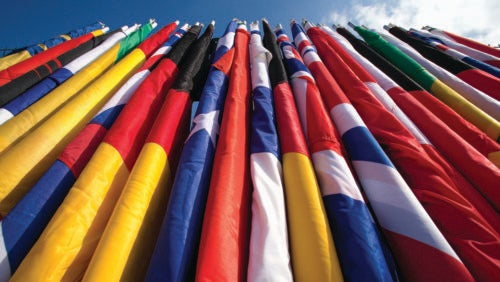What Does the Evolving Security Order Mean for Russia, Europe, and the U.S.?
October 14, 2018 by Editor

By Katie Rumer
It is going to get worse before it gets better. One panel member at the Center for Strategic and International Studies’ (CSIS) event on October 3 titled, “Russia and the Evolving European Security Order” summed up the current picture of the world security order in this way. The other participants agreed. This panel, which was moderated by Olga Oliker, Senior Adviser and Director of the Russia and Eurasia Program at CSIS, consisted of experts on security in Europe and Russia. The perspectives of Russian, the United States, and Europe were all represented. Panelists were Ivan Timofeev and Andrey Kortunov of Russian International Affairs Council (RIAC), Constanze Stelzenmüller, a Senior Fellow at the Center on the United States and Europe at the Brookings Institution, William Hill, Professor of National Security Strategy at the National War College and Global Fellow at the Woodrow Wilson Center, and Michael Kofman, a Senior Research Scientist for the Russia Studies Program at CNA.
The panel addressed questions from Oliker, then the audience, regarding the evolving security interests in Europe in light of the many changes that the global stage is undergoing at the present time. There was also a focus on how Russia and the U.S. interact with the continent, how this has changed since the Cold War, and how it may continue to change over the next several years. Rising popularity of nationalist movements and the proliferation of third-party actors in the global security system, along with the continuation of military conflict in the world, has forced traditional state actors to rethink their place in the international system, and this includes their treatment of international law.
One of the first questions that Oliker posed to the panel was whether we are currently facing a new Cold War with Russia. Opinions on this topic varied widely. Andrey Kortunov, the Director General of RIAC, expressed his view that there is no real devolution of relations between Russia and Europe and the U.S., since the Ukraine conflict has deescalated and Russia’s economy has rebounded from sanctions imposed by the U.S. and E.U. countries. Kortunov asserted that the changes in the international framework from the mid to late 20th century to the present day, including the rise in non-state actors and de-emphasis on the hierarchy of military alliances, make this comparison ineffective.
Constanze Stelzenmüller had a different take than the assessment by the Russian policy expert. In her answer, she highlighted the escalatory logic we are currently seeing on the continent and noted that this is the deepest divide we have seen in the transatlantic relationship with Europe. Ms. Stelzenmüller pointed out the Skripal incident as an example of this sort of escalation. This incident involved the poisoning of a former Russian spy, Sergei Skripal, and his daughter, with a Novichok nerve agent on a park bench in England. After the U.K. determined that the origin of the nerve agent was Russia, Prime Minister Theresa May led a successful campaign in the E.U. to denounce Russia over the incident, which violated U.K. sovereignty. This led to the E.U. withdrawing its Ambassador to Moscow, and many other European countries and the U.S. following suit with their own expulsion of Russian diplomats. The event reduced prospects of economic sanctions against Russia being lifted anytime soon and represented a classic case of a reciprocal diplomatic escalation of tensions between Russia, Europe, and the U.S.
Mr. Kortunov expressed his belief that the E.U. has relied on the U.S. too much in leading the way on international issues, and that this has made the region unprepared for a new agenda. He pointed out climate change as an issue that requires international cooperation, including Russian participation, to solve, which Professor Hill echoed. This issue in particular is a challenge for international cooperation, since lack of participation from the U.S. hurts the ability of international climate change institutions to capacity-build, in addition to the physical impacts of its non-participation. The issue is also closely tied to domestic political divisions in the U.S. Time will tell if the U.N.’s Intergovernmental Panel on Climate Change’s report issued on October 8 will have any effect on this division, but if President Trump’s current stance on climate change is an indicator, it is not likely to do so.
Ms. Stelzenmüller also pointedly asserted that Russia is opportunistically exploiting domestic divisions within European states and the U.S. for their own purposes. She also insisted that this approach will have damaging consequences for Russia. Later in the talk, she spoke about the wave identity politics that have resulted in ideological conflict within many countries. She believes that people across Europe and the U.S. are grappling with modernity, and when a leader promises easy solutions as a way to escape the complexity of the modern world, it appeals to the masses. The parallels Ms. Stelzenmüller seemed to be drawing to the issues leading up to World War II, instead of the Cold War, were striking. She stated that people willing to dismantle liberal democracy and pluralism are gaining the upper hand, and that centrist forces are on the defensive, even dumbstruck with fear. The key is to understand what is going on, Ms. Stelzenmüller said, and “I think I know what is happening here and I will be damned if I let it happen.” Looking toward the future, Ms. Stelzenmüller said that European states and the U.S. need to find a constructive middle ground internally with their domestic politics, and that opposing sides need to find empathy for each other in order to achieve a political solution. Of the alternative, she noted: “What we are threatened with is so much larger.”

